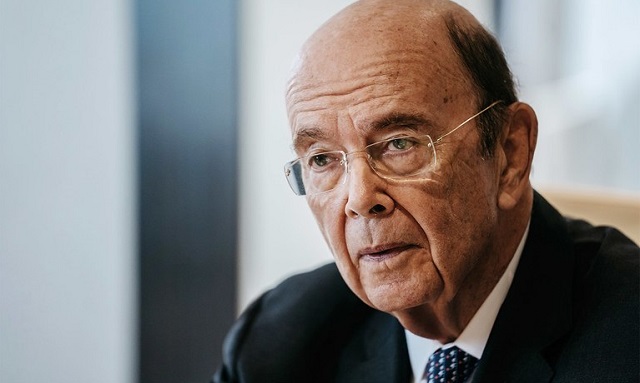
Washington, United States | AFP | China’s economy is more vulnerable to the fallout in the current trade stand-off with Washington and already has been hurt by the dispute, US Commerce Secretary Wilbur Ross said Monday.
Ross’s remarks emphasized President Donald Trump’s confidence that the robust US economy means Washington can outlast Beijing in a test of wills over trade.
“It certainly has hurt the Chinese economy,” Ross told CNBC. “What this whole trade thing is about is they export several times as much to us as we export to them.”
“So what we have at risk is a very small amount both absolutely and because our economy is bigger than theirs,” Ross added.
Senior US officials were in Beijing on Monday for the first face-to-face negotiations since Trump agreed to a 90-day cease fire with China’s leader Xi Jinping on December 1.
The negotiations are aimed at resolving US allegations of unfair trade practices, including massive state subsidies and “theft” of American technological know-how.
Economic data show the Chinese economy has suffered since Trump last year slapped stinging tariffs on more than $250 billion in Chinese imports.
Ask if he was happy or concerned about the slowing in the world’s second largest economy, Ross said, “Not happy nor guilty. We expected this would happen.”
But he said “what has changed is China now understands how independent they are on us.”
However, signs are emerging of an increasing toll on US industry as well. US manufacturing activity in December had its biggest drop since the global financial meltdown of 2008.
Without a resolution, punitive US duty rates on $200 billion in Chinese goods are due to rise to 25 percent from 10 percent on March 2.
Analysts say Washington’s complaints imply far-reaching changes to Beijing’s industrial policies, but Ross said there was a “very good chance” of reaching an agreement, although monitoring compliance would present a challenge.
Righting the yawning trade imbalance with China, possibly involving more US fuel exports, would be “easiest,” he said, while structural reforms would be “much harder.”
“That’s about intellectual property rights. That’s about market access. That’s about all kinds of things in the list of 142 things we submitted to them many months ago.”
The hardest would be a formal agreement, Ross said, “but the history here has not been so good on compliance,” so enforcement mechanisms will require teeth.
 The Independent Uganda: You get the Truth we Pay the Price
The Independent Uganda: You get the Truth we Pay the Price





